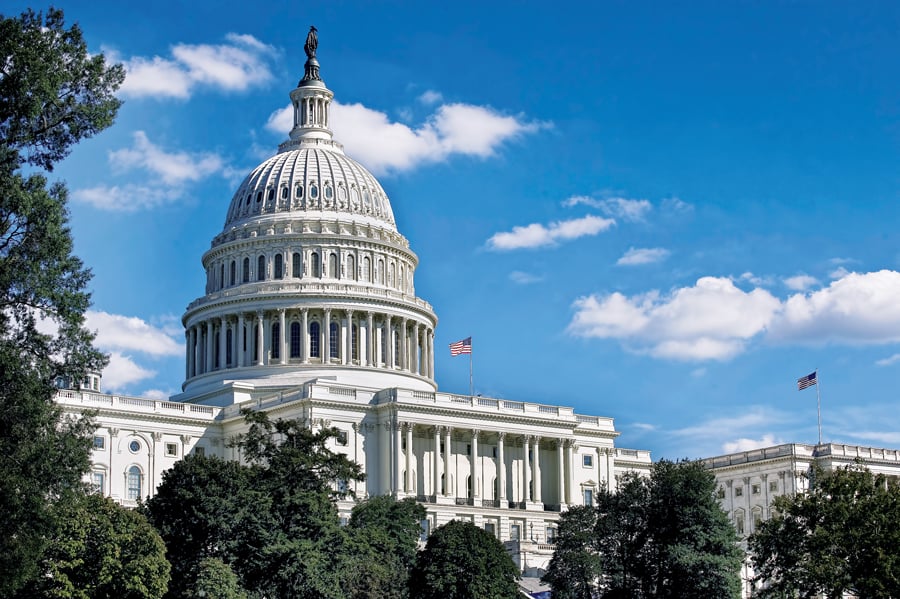

The CARES Act provides relief for participants in qualified retirement plans and individual retirement accounts. The relief measures are: an enhanced loan provision for plans, new coronavirus-related distribution option for plans and IRAs, and a waiver of required minimum distributions from plans and IRAs. All are immediately effective.
The enhanced loan provision applies to qualified retirement plans and 403(b) arrangements and will allow affected participants to borrow 100% of their vested benefits up to $100,000. The regular rule is 50% of the vested benefits up to $50,000. (The CARES Act refers to an affected participant as a “qualified individual” and defines that as someone who has been diagnosed with the coronavirus, whose spouse or dependent is diagnosed with the coronavirus, or who is experiencing “adverse financial consequences” as a result of the pandemic.)
The act also provides for the due dates for payments on the loans to affected participants to be delayed for one year and for the term of the loan to be extended.
The loan provisions -- increased amounts, delayed payments and extended terms -- are optional for plan sponsors. They can decide to add one, both or none. The enhanced loan provisions are temporary and are only available until Sept. 23.
The new coronavirus-related distribution, or CRD, provision allows plan sponsors to add a new, temporary withdrawal provision for affected participants, which is similar to the usual hardship withdrawal provisions, but more helpful. The CRD provision applies to defined contribution plans, 403(b) arrangements and 457(b) plans.
The new CRD permits withdrawals of vested account balances up to $100,000. The definition of affected participant, or qualifying individual, is the same as for the new loan provision.
Similarly, qualifying individuals can withdraw CRDs from their IRAs. The aggregate CRDs, though, cannot exceed $100,000.
Participants will be taxed for the CRDs over the three years following the distribution. However, if the participant elects, he or she can roll part or all of the distribution back into the plan, or into another qualified plan or an IRA within the three-year period. To the extent that the distribution is rolled over, it will not be taxed to the participant. The rollover provision does not require, or even allow, the payment of any interest on the CRD amount.
For both CRDs and enhanced loans, affected participants can self-certify that they are “qualifying individuals.” Plan sponsors and fiduciaries do not need to investigate whether the participant is eligible for the relief.
The third provision is somewhat different. It provides relief for participants who turned 70½ in 2019 or earlier and therefore must take required minimum distributions this year based on their Dec. 31, 2019 account or IRA balances. That could require the liquidation of investments in a down market, which would be inordinately expensive. As a result, Congress gave IRA owners and defined contribution participants the option of not taking RMDs this year.
The RMD rules for plans are similar, but of more limited application than the rules for IRAs. That is because they only apply in limited circumstances, that is, for former employees who left their account balances in the plan and for “key” employees who are still working for the plan sponsor. (A key employee is a person who owns 5% or more of the plan sponsor.) Those payments are suspended as well.
Plan sponsors will need to amend their plans to cover the CARES Act changes that they decide to implement. However, at this time, the decision for plan sponsors is whether to adopt any or all of these changes for their plans and participants. Their plans do not need to be amended until the plan year beginning in 2022.
As with any plan decisions, there are pros and cons to adopting these changes. Plan sponsors should discuss those considerations with their advisers. However, our experience so far is that most plans will be adding these provisions to their plans.
Fred Reish is a partner at the law firm Drinker Biddle & Reath.

Most firms place a limit on advisors’ sales of alternative investments to clients in the neighborhood of 10% a customer’s net worth.

Those jumping ship include women advisors and breakaways.

Firms in New York and Arizona are the latest additions to the mega-RIA.

The agent, Todd Bernstein, 67, has been charged with four counts of insurance fraud linked to allegedly switching clients from one set of annuities to another.

“While harm certainly occurred, it was not the cataclysmic harm that can justify a nearly half billion-dollar award to the State,” Justice Peter Moulton wrote, while Trump will face limits in his ability to do business in New York.
Orion's Tom Wilson on delivering coordinated, high-touch service in a world where returns alone no longer set you apart.
Barely a decade old, registered index-linked annuities have quickly surged in popularity, thanks to their unique blend of protection and growth potential—an appealing option for investors looking to chart a steadier course through today's choppy market waters, says Myles Lambert, Brighthouse Financial.
